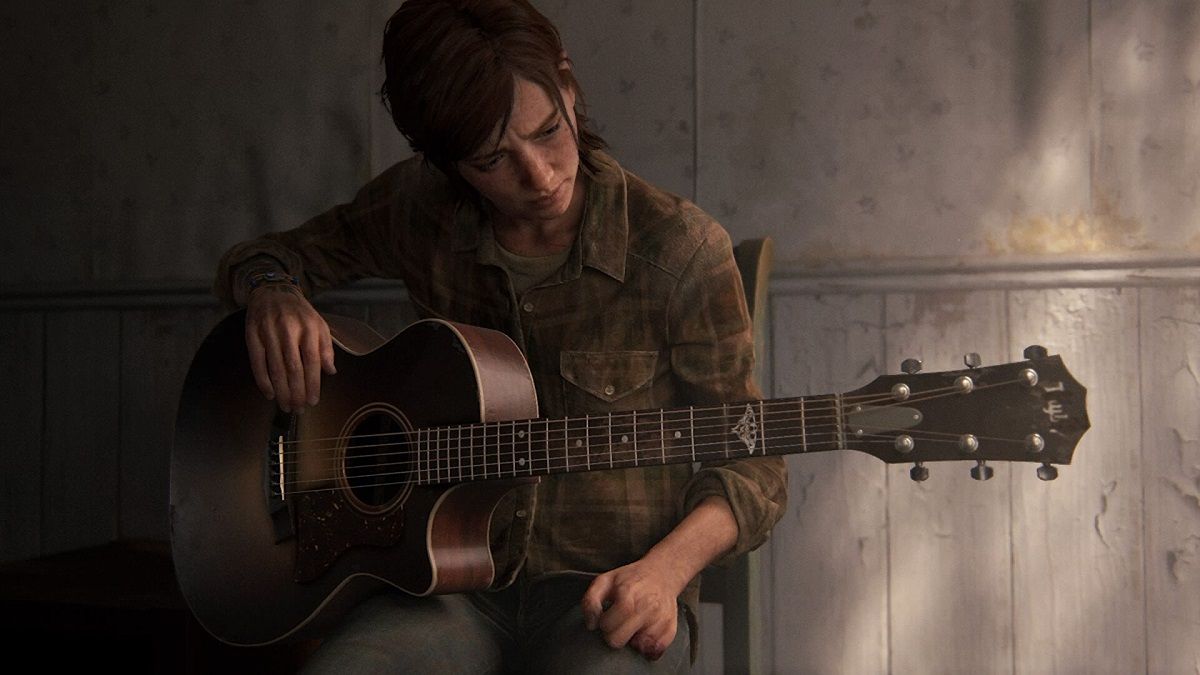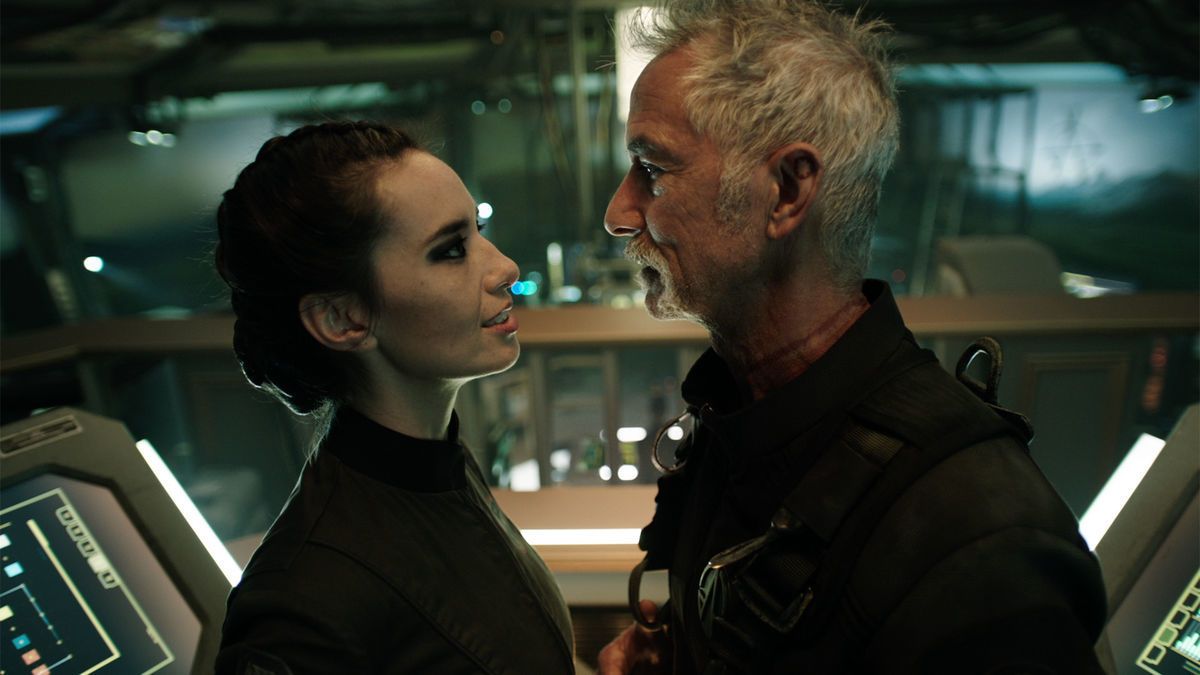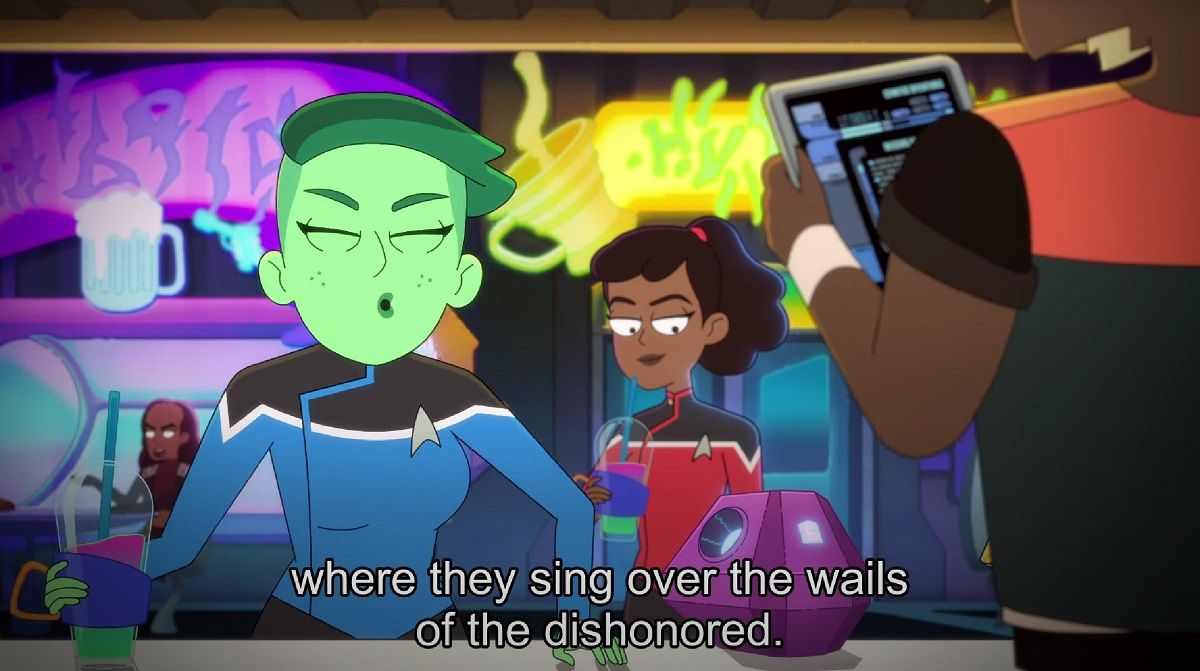Countdown to TLOU #6 (Culture in Genre)
One of my favorite things to explore, no matter the genre, is a setting's culture. Not capital-c Culture, but what's experienced by regular folks.

So, I ended up dividing this essay into two parts, because it was getting longer than I expected in the first half. Here's what you have to look forward to:
- This issue: I write generally about how music is used in the worlds of genre film and TV. Not the scores, but in-world music.
- Next issue: I specifically zoom in on post-apocalyptic stories and how their fictional characters and communities enjoy, create, and respond to music...and what I think storytellers can do better.
Hopefully, both parts will provide you with some fun listens! There will be music galore!
Welcome to the intersection of Teresa & Music --
I love speculative fiction. Sci-fi, fantasy, dystopian, post-apocalyptic--I love it all! One of my favorite things to think about, no matter the genre, is the setting's culture. Not its highbrow, capital-c Culture, but the culture as experienced by ordinary people. Popular culture, if you will. What clothes do average people wear? What stories are they enjoying and creating? And what music do they listen to?
This is separate from the film or show's score. I'm talking about the music that characters enjoy and make in the world of the show. What does it sound like, and how do they create it?
You can tell a lot about a culture or a character by what music they listen to, whether or not they make music, what music they make, and how they make it. Yet, in a lot of genre storytelling, the music people listen to is just...barely-disguised variations on our own music. There are few attempts at evolving human cultures into something really different. They either have future people listening to generic techno, generic classical music, or they'll take an existing genre of music and stick an alien adjective on it--like "Klingon Opera" in the Star Trek franchise.
Obviously we tell these stories from our current perspective. It'd be impossible for us not to, but we can at least thoughtfully extrapolate what our current music might become. You know, the way we extrapolate how tech might evolve.
There are, however, some stories that get closer to the kind of thoughtfulness with culture I'd like to see more:

The Expanse is one of the (if not the?) best sci-fi TV shows of all time, so it's not surprising that one of the things they get so right is the depiction of "Belter" culture. After all, they're also one of the most scientifically accurate sci-fi shows of all time. They have great attention to detail.
In The Expanse, the Belters are the group of humans who were sent out into space to mine the asteroids in the asteroid belt. They are a people born in space--generations of oppressed, neglected workers born on ships and space stations, separated from Earth, colonized, and treated like second-class citizens for so long that they develop their own dialect, their own cultural markers, their own music.... Here's two great examples:
- "Highway Star (Belter Version)" - from S3 Ep7 - in an awesome, 7-min scene you should watch, we're introduced to a young, Belter slingshot racer who's trying to break a racing record. It doesn't end well, but this song (with setting-appropriate lyrics, use of Belter creole, and appropriately rebellious rock sound) is a thoughtful attempt to capture what Belter culture would produce musically. Yes, it's a reworking of the 1972 Deep Purple song of the same name, but that, too, is true to what might happen. Think about how many samples of old songs current artists use and how many covers of old songs current artists do. This song finding its way into the Belter canon is a thoughtful and effective choice based on their cultural values and their history.
- Belter-fied version of "The Ballad of Captain Kidd" - S3 Ep11 - when Klaes Ashford and Camina Drummer are trapped by a large piece of farming equipment and possibly near death, Ashford sings a song that sounds like a sea shanty, which he used to sing to his daughter. After a poignant scene where they talk about what it means to be a Belter, Drummer joins Ashford in singing the song. I love that this shows a different side of Belter culture. Whereas "Highway Star" captures Belter rebelliousness, this song captures an existence where space piracy is the norm and how floating in the black of space makes one introspective. Again, a thoughtful choice was made in having this ballad about an actual pirate from the 1700s find its way into Belter culture, have its lyrics reworked in their creole, and be meaningful to this particular culture at this particular time. I mean, just look at Sea Shanty TikTok in the present day. These things happen.

Star Trek: Lower Decks has been doing a great job in building out what pop culture our main group of lower-deck ensigns enjoy when they're not on duty cleaning the jizz out of the holodeck filters.
First, there was the "Chu Chu" dance, which later became the "Chu Chu Chu" dance in the Season 1 episode, "Terminal Provocations." I loved hearing mention of a 24th Century dance craze. Of course, we never see the "Chu Chu (Chu)" dance, but we don't need to. It's something the characters in the world of Lower Decks know about and enjoy, and that's all that matters.
Now, I know that earlier I sorta poked fun at adding an alien adjective in front of an existing music genre, like "Klingon Opera," but with Klingon Acid Punk, Lower Decks solves another problem that a lot of sci-fi shows have when dealing with alien cultures. Homogeneity.
Too often, when sci-fi presents us with alien worlds--or even Future Earth--it's like they forget that planets are big, and different languages, dialects, cultures, and values naturally develop in different areas. Sci-fi fans forget this sometimes, too! I remember the big stink people made over the Klingons "looking different" on Star Trek: Discovery. All I could think was, Do human beings on THIS PLANET ALL LOOK THE SAME?
This is why I'm glad we got to hear different types of Belter music on The Expanse. Because there is no one Belter culture any more than there's one human culture.
Up until this point, all we really knew about the music available to Klingons in the Star Trek universe was their opera, or their war songs. But Lower Decks teaches us that the hit Klingon Acid Punk jam "Gre'thor Paradise" by Gik'Tal is best performed when the band sings over the wails of the dishonored. It's what the kids are listening to, and it's the music that reaches out and grabs young people from other worlds, too.
Watching people off-handedly reference music they listen to is something I'd love to see a lot more in genre fiction. People are more than just their technological advancements, or their military pursuits, or their scientific discoveries. They are beings with emotions and dreams that need to be expressed, and whether they express them and how they express them is something that genre storytellers should give more thought than they usually do.
[NEXT UP: What could post-apocalyptic shows and films do better when it comes to in-world music?]

